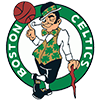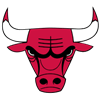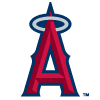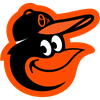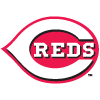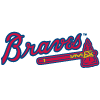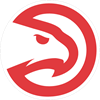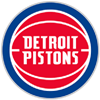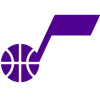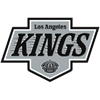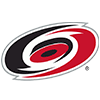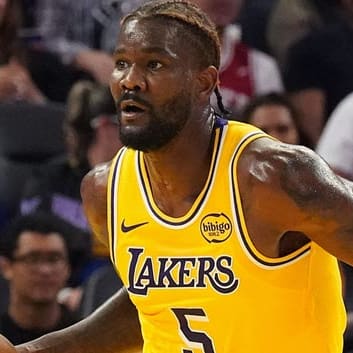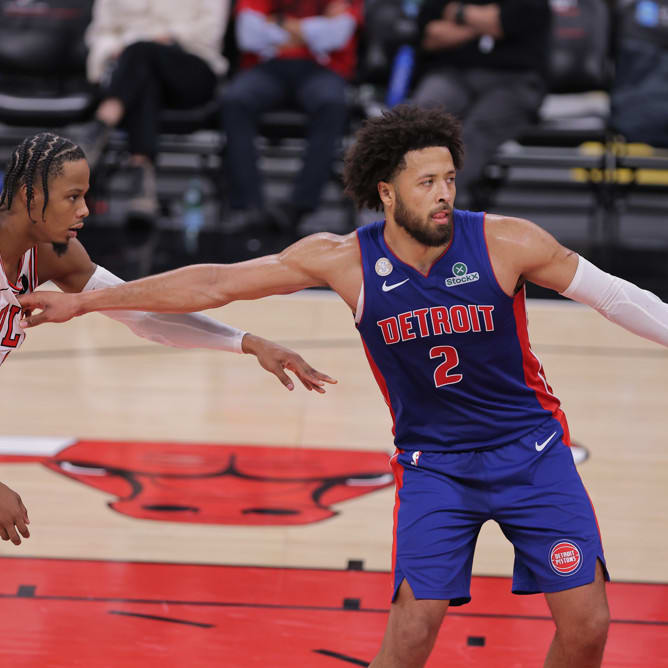STATE OF THE FRANCHISE
The Grizzlies reached the Western Conference finals as a fifth seed after winning a franchise-best 56 games in 2012-13. They weathered the loss of its scoring and salary leader, going 27-11 after trading Rudy Gay to Toronto, and improving their winning percentage for a fourth straight season. All five starters return and are locked up through 2014-15. This team's time is now, and they should be among the top players in a stacked Western Conference. Memphis is a good place to be, unless you're Lionel Hollins.
Hollins coached the team for the last four seasons, but there were cracks in his relationship with some players. And he didn't have chemistry with Memphis' new owner, Robert Pera, a 34-year-old with crazy internet money who bought the team in 2012. Pera's first major move was to hire former ESPN.com analytics guru John Hollinger as the vice president of basketball operations.
Lionel Hollins wasn't happy with the Gay trade, which was a financial decision more than a basketball one, nor does he embrace the creeping presence of statistical analysis in the NBA. These days, when successful sports franchises need to have its coach, its operations department and its ownership on the same page, it became apparent to Pera that Hollins wasn't the man for this team at this time.
To take Hollins' place, the Grizzlies turned in house to David Joerger, a defensive specialist who's been on the Memphis bench since 2007, so there shouldn't be a continuity problem.
STATE OF THE FRANCHISE
The Grizzlies reached the Western Conference finals as a fifth seed after winning a franchise-best 56 games in 2012-13. They weathered the loss of its scoring and salary leader, going 27-11 after trading Rudy Gay to Toronto, and improving their winning percentage for a fourth straight season. All five starters return and are locked up through 2014-15. This team's time is now, and they should be among the top players in a stacked Western Conference. Memphis is a good place to be, unless you're Lionel Hollins.
Hollins coached the team for the last four seasons, but there were cracks in his relationship with some players. And he didn't have chemistry with Memphis' new owner, Robert Pera, a 34-year-old with crazy internet money who bought the team in 2012. Pera's first major move was to hire former ESPN.com analytics guru John Hollinger as the vice president of basketball operations.
Lionel Hollins wasn't happy with the Gay trade, which was a financial decision more than a basketball one, nor does he embrace the creeping presence of statistical analysis in the NBA. These days, when successful sports franchises need to have its coach, its operations department and its ownership on the same page, it became apparent to Pera that Hollins wasn't the man for this team at this time.
To take Hollins' place, the Grizzlies turned in house to David Joerger, a defensive specialist who's been on the Memphis bench since 2007, so there shouldn't be a continuity problem. He plans to speed up the offense; in 2012-13 the Grizzlies were last in pace. What would help serve the goal of upping the tempo is having a deeper, more reliable bench, which has been a weakness for the Grizzlies the last several years. Adding Mike Miller should help with the spacing issues that have dogged the Grizz, who were last in 3-pointers made in 2012-13. Is Ed Davis ready to assume a larger role as Zach Randolph transitions to a decline phase at age 32? Davis was the key piece coming back from Toronto in the Gay deal.
Joerger's had a ton of success in the minor leagues as a head coach, winning three CBA titles, a D-League title and an IBA (Independent Basketball Association), but this coaching change is a pretty big gamble. Pera broke up a successful situation, and a significant portion of that success was due to Hollins.
PLAYING TIME DISTRIBUTION
The Grizzlies rely heavily on their starting five. Joerger's first challenge is to mix in what appears to be a deeper bench. If the coach remains true to his word and plays up-tempo, there could be a reduction in some of the starter's minutes. Starting in the backcourt will be point guard Mike Conley (35 minutes) and shooting guard Tony Allen (28-30 minutes). Jerryd Bayless (20-22 minutes) will be the first guard off the bench and back up both. Tayshaun Prince will start at small forward and will play in the 30-minute range. Mike Miller will back up there, but we should also see Quincy Pondexter as Miller is not a lock to play a full season or get more than 15-17 minutes. The frontcourt is a strength. Zach Randolph (32 minutes) will start at power forward and Marc Gasol (35 minutes) at center. The developing Ed Davis will back up Randolph, and Kosta Koufos backs up Gasol.
PLAYER OUTLOOKS
Center
Marc Gasol: Once considered nothing more than scraps in the deal that sent his brother Pau to Los Angeles, Marc is now the Gasol brother to target in fantasy. He put together arguably his best season as a pro in 2012-13, cementing himself as one of the better true centers in the league while also taking home Defensive Player of the Year honors. Gasol finished last season with averages of 14.1 points, 7.8 rebounds, 1.7 blocks and 1.0 steal – numbers that are all in line with his career per-36 numbers. But it was his improvement at the charity stripe (85 percent) and playmaking (4.0 assists per game) which elevated his overall fantasy game to top-tier levels. Consistency is the key with Gasol – he's been healthy for most of his career while posting similar per-minute production since entering the league – but he has flashed upside for more stat-stuffing if the Grizzlies ever opt to lean on him even more heavily. While he may not have some of the eye-popping double-double numbers you'll see from flashier big men, Gasol's across-the-board production and consistency is extremely valuable in fantasy and makes him one of the safer picks at the pivot position.
Kosta Koufos: Koufos enjoyed the best season of his five-year NBA career in 2012-13, playing a season-high 22.4 minutes and averaging 8.0 points, 6.9 rebounds and 1.3 blocks per game. His numbers improved each of the last three years in Denver. However, he won't get a chance to make it a fourth straight year. In Memphis, he'll back up Marc Gasol and will struggle to crack the 15-minute mark most nights. And that will be fine for the Grizzlies and their passionate fan base. As long as the drop off from Gasol, the NBA's Defensive Player of the Year last season, isn't too great, Koufos will be viewed as a success.
Forward
Zach Randolph: Randolph put up a strong comeback 2012-13 season after having played just 28 games in the 2011-12 season due to injuries. He finished the year with averages of 15.4 points (46 percent from the field, 75 percent from the line), 11.2 rebounds and 1.4 assists. While Randolph has never been the type of player to produce steals and blocks on a consistent basis (with career averages of just 0.8 steals and 0.3 blocks), he is likely to remain a double-double machine even as he enters his 13th year in the NBA. Owners who decide to draft him may want to consider finding other frontcourt options to fill up the hole in the blocks category. Randolph should continue to see big minutes in the rotation despite the offseason addition of Kosta Koufos, whose ability to back up both big man spots can only help Randolph remain fresh throughout the season. While Randolph's best days are most likely behind him, he still looks to be a solid fantasy option this coming season.
Ed Davis: Davis appeared to be having a semi-breakout season with the Raptors in 2012-13 before he was shipped to Memphis in the Rudy Gay trade. With the Grizzlies, Davis averaged nine minutes less per game and never fit in with head coach Lionel Hollins, who wasn't happy with the trade. It may have been the coach's grudge or Davis' inability to pick up a new system that resulted in him not having an impact in Memphis. Aside of ridding themselves of Gay's salary, the Grizzlies viewEd Davis as a key asset in the deal. He's still on the thin side, so it remains to be seen if he can become a power forward who doesn't get pushed around in the low post. His minutes will be capped with Zach Randolph in front of him, but the Grizz are hoping to see a player that can eventually replace Z-Bo.
Jon Leuer: Leuer spent time with Cleveland and Memphis last season, averaging 5.1 minutes in 19 games after the Grizzlies acquired him. They signed him up for three more years and feel he can play the quicker pace that coach Dave Joerger expects to implement this season. If he can be a stretch-four and hit his pick-and-pop opportunities, Leuer could fill a niche roster spot and give the Grizzlies a different frontcourt look for stretches in a game. At $1 million per year, Leuer comes cheap.
Tayshaun Prince: Prince split time between Detroit and Memphis last season, and he was lower profile with the Grizzlies, getting fewer shots and scoring fewer points. Eleven years into his career, Prince has lost some athleticism and is in a decline phase, but still has the length to defend. He'll open the season as the starting small forward, but his shooting range isn't what it once was. And range is important when the perimeter also includes Tony Allen. Consistent jump shooting creates space for Zach Randolph and Marc Gasol inside. As such, we'll probably see Mike Miller and Quincy Pondexter eating into Prince's playing time.
Mike Miller: Miller comes back to Memphis after winning a couple of rings with the Heat the last two seasons. The Grizzlies are a team in need of perimeter shooting and there are few better than Miller, who has averaged 40.6 percent from 3-point range during a 13-year career. Injuries (back and both knees) have prevented him from playing a full season since 2008-09, and it's been a long time since any team or coach relied on Miller for anything more than a limited role as a bench scorer. If he can stay healthy, giving Memphis 60-70 games as a consistent 3-point threat and floor-spacer, this is a good add for the Grizzlies.
Quincy Pondexter: Pondexter improved statistically for a second consecutive season in 2012-13, averaging career highs in points (6.6), rebounds (2.2), assists (1.0) and minutes played (21.1). Memphis' weak bench has given Pondexter an opportunity to become a legitimate rotation player. Injuries limited him to 59 games last season, and he hasn't played more than 66 games in any of his three NBA seasons. With Rudy Gay gone, there's a chance for Pondexter to grab more reserve minutes this coming season. He shot well from the perimeter last season, making 39.5 percent from 3-point distance. That's a skill the Grizzlies need. If he can continue to improve his overall game, there may be a chance for him to grab some starts from Tayshaun Prince.
Melvin Ely: Ely's a journeyman NBA big guy who hasn't played a game in the league since 2010-11. The Grizz have some depth in the frontcourt with Kosta Koufos and Ed Davis the primary backups. Add in Jon Leuer, who signed a three-year deal in the offseason, and it's hard to see Ely grabbing a spot on the opening-night roster.
Willie Reed: Reed is a D-League refugee who signed on with the Grizzlies late last season, but didn't figure into Memphis' playoff run. He's still on the roster and will be training camp fodder mostly. We don't see him surviving.
Guard
Mike Conley: The Grizzlies' outstanding frontcourt pairing of Marc Gasol and Zach Randolph rightfully gets much of the credit for the team's success. But don't overlook the continued improvement of Mike Conley. Conley is coming off his best season as a professional, with averages of 14.6 points (a career high), 6.1 assists, a league-leading 172 steals (2.2 spg), while shooting 44 percent from the floor and 36 percent from three. And those numbers don't really tell the whole story – Conley actually became a much more important part of the offense after the trade that sent Rudy Gay to Toronto. He scored 16.4 points per game after the deal, and 17 ppg in the postseason. With the Grizzlies expected to start defense-first players Tony Allen and Tayshaun Prince at shooting guard and small forward this season, look for Conley to solidify his position as the team's primary perimeter threat – and very possibly, to surpass Randolph as the second option on offense.
Tony Allen: Allen continued to be among the league's best perimeter defenders last season, a valuable piece for fantasy teams in the steals category. He plays hard all over the court and brings the kind of energy that's contagious throughout a lineup. His shooting percentage (career 47.5 percent) suggests he's not an offensive cipher, but he is. As a jump shooter, Allen is abysmal, and that allows opponents to collapse inside where they double up Memphis' offensive threats, Zach Randolph and Marc Gasol. He'll start at shooting guard and impact games defensively, but his inability to be a threat offensively will cap his playing time.
Jerryd Bayless: Bayless got plenty of run as the top reserve guard in his first season with the Grizzlies, averaging 22 minutes per game as a combo guard. Locally, it was viewed surprising that he exercised his player option, but he did so one day after the franchise hired Dave Joerger to replace Lionel Hollins as head coach. That indicates something about the Bayless/Hollins dynamic last season. He's a bit of a tweener, but Bayless is the closest thing they have to a backup for Mike Conley at point guard. Entering the final year of his contract before becoming an unrestricted free agent, Bayless will be part of the rotation and has an opportunity to earn a good contract if he can evolve into an efficient offensive player.
Jamaal Franklin: Franklin was a do-everything guy at San Diego State, averaging 16.6 points, 9.4 rebounds, 3.3 assists and 1.6 steals as the Aztecs' shooting guard. The Grizzlies bench is as deep as it has been in the last few years, and they're particularly deep on the perimeter, so the rookie is likely headed for a year on the bench or D-League or both. Franklin plays defense and will need to improve as a shooter. In that sense, he's the next Tony Allen.
Nick Calathes: The Grizzlies traded a future second-round draft pick for Calathes, a point guard who was drafted in 2009 but has not played a game in the NBA. At the time of the 2009 draft, VP of basketball operations John Hollinger loved him coming out Florida and was keen to bring him on board. At best, Calathes will be the third point guard this season but will not see much time for the Grizzlies.
SLEEPER
Quincy Pondexter: Pondexter will be part of the Memphis rotation, so there's opportunity. He can defend and has improved his shooting since entering the NBA. If he can keep it together, health-wise, for a full 82-game season while continuing to develop offensively, Pondexter could emerge as a sixth man playing both shooting guard and small forward.
BUST
Kosta Koufos: We're not necessarily down on Koufos, but he's not going to have the opportunity he had last season in Denver, where he averaged 22.4 minutes a night. That was enough to average 8.0 points and 6.9 rebounds, which can be fringe value in deep leagues. The Grizzlies don't need him for that many minutes, and therefore, his value will drop this coming season.







